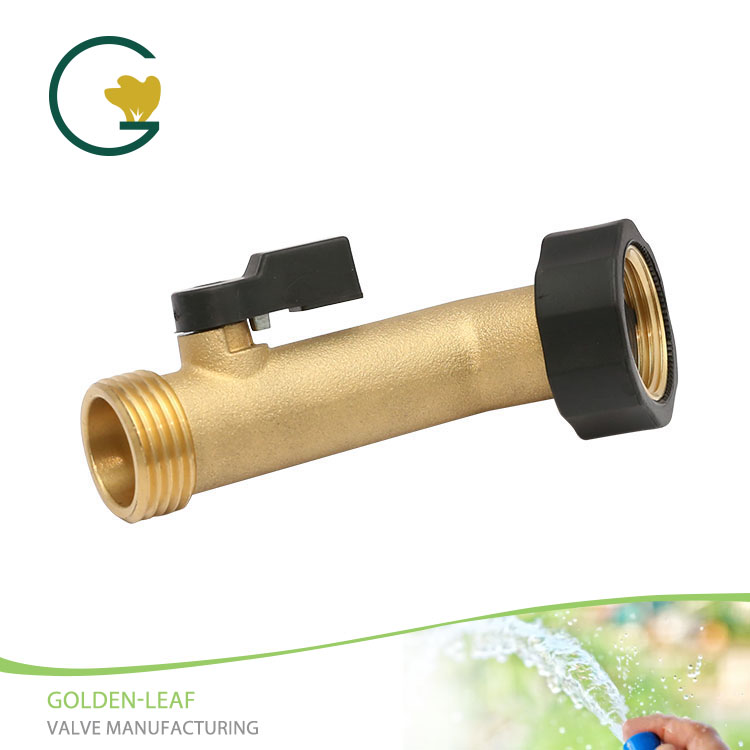Brass Valves: The Essential Component for Reliable Fluid Control
2025-03-11
When it comes to fluid control systems, the importance of high-quality valves cannot be overstated. Brass valves, known for their durability, corrosion resistance, and versatility, have become a preferred choice in various industries. Whether it's in residential plumbing, industrial applications, or commercial settings, brass valves play a critical role in regulating the flow of liquids and gases. In this blog, we'll explore the significance of brass valves, their advantages, and common applications.
What are Brass Valves?
Brass valves are mechanical devices made from brass, a metal alloy composed primarily of copper and zinc. These valves are designed to control the flow of liquids, gases, or steam through a pipeline or system. Brass valves can either allow or block the passage of fluids by manipulating internal components such as ball, gate, or disc mechanisms.
They are typically used to control flow rate, pressure, and direction in a variety of systems. Their robust construction and reliable functionality make them a popular choice for applications requiring precise fluid management.
Advantages of Brass Valves
Brass valves offer numerous advantages that contribute to their widespread use in different industries. Let’s take a look at the key benefits of choosing brass valves over other materials:
1. Corrosion Resistance
One of the most significant advantages of brass valves is their ability to resist corrosion. Brass is highly resistant to rust and deterioration caused by exposure to moisture and other harsh environmental conditions. This makes brass valves ideal for use in systems where they may come into contact with water, air, or chemicals, such as in plumbing systems, HVAC units, and marine environments.
2. Durability and Longevity
Brass is a strong, durable material that can withstand high-pressure conditions, making it a reliable choice for both residential and industrial applications. Unlike plastic or other metal valves, brass valves are resistant to wear and tear, ensuring they function effectively over time without frequent maintenance or replacements. This longevity translates into cost savings and less downtime for users.
3. Temperature Resistance
Brass valves can handle a wide range of temperatures without compromising their structural integrity. Whether the fluid being controlled is extremely hot or cold, brass valves can maintain their performance in both high-temperature and low-temperature environments. This makes them suitable for applications in heating systems, cooling systems, and hot water systems.
4. Ease of Maintenance
Brass valves are relatively easy to maintain compared to other valve materials. Since brass is resistant to corrosion, it is less likely to develop issues such as scale buildup or rusting. As a result, brass valves often require less frequent cleaning and upkeep, leading to lower maintenance costs and extended service life.
5. Versatility
Brass valves are versatile and can be used in a wide range of applications, from simple residential plumbing to more complex industrial systems. Their ability to handle different types of fluids (water, steam, oil, gases, etc.) makes them suitable for many different industries, including automotive, chemical processing, heating, cooling, and water management.
6. Aesthetic Appeal
Brass valves also have an attractive appearance due to their gold-like color and shine. This makes them a preferred option in situations where aesthetic considerations are important, such as in architectural designs or high-end plumbing fixtures. The aesthetic appeal of brass ensures that valves blend seamlessly with the overall design of the space.
Common Applications of Brass Valves
Brass valves are used across a broad spectrum of industries due to their durability, flexibility, and resistance to wear. Here are some of the most common applications where brass valves are essential:
1. Residential Plumbing
In residential settings, brass valves are commonly used for controlling water flow in plumbing systems. They are often found in faucets, shower valves, and shut-off valves, where they regulate water flow and pressure. Their corrosion resistance makes them ideal for use in areas with high humidity, such as bathrooms and kitchens.
2. HVAC Systems
In heating, ventilation, and air conditioning (HVAC) systems, brass valves are used to regulate the flow of water or refrigerants. They help control temperature and pressure within the system, ensuring optimal performance and energy efficiency. Brass valves are often found in radiator valves, pressure-reducing valves, and zone control valves.
3. Industrial Applications
In industrial settings, brass valves are used in a variety of processes, including chemical processing, oil and gas production, and manufacturing. Their ability to withstand high pressures and temperatures makes them suitable for controlling the flow of both liquids and gases in complex systems. They are often used in steam lines, control systems, and heavy-duty machinery.
4. Water Supply and Irrigation Systems
Brass valves are frequently used in water supply and irrigation systems, as they provide a reliable and durable way to control the flow of water. They can be found in both residential and commercial water systems, as well as in agricultural irrigation systems, where they regulate water pressure and ensure efficient water usage.
5. Marine Applications
Due to their resistance to corrosion from saltwater, brass valves are widely used in marine applications. They are used in boat engines, water pumps, and other systems exposed to harsh marine environments. Their reliability in saltwater conditions makes them essential for keeping marine equipment functional and safe.
6. Gas Systems
Brass valves are commonly used in gas systems, such as in natural gas pipelines and propane systems. Their ability to control the flow of gases safely and reliably makes them a critical component in gas distribution systems. Brass valves ensure that gases are delivered at the correct pressure and volume, preventing leaks or system failures.
Conclusion
Brass valves are a vital component in fluid control systems across a wide range of industries. Their durability, corrosion resistance, and versatility make them an ideal choice for applications in plumbing, HVAC, industrial machinery, water supply, and more. Whether you're looking for a reliable valve for a residential project or need a durable solution for an industrial application, brass valves offer long-lasting performance and cost-effective benefits. By understanding their advantages and applications, businesses and homeowners can make informed decisions when selecting the right valves for their needs, ensuring smooth operations and reduced maintenance costs for years to come.



